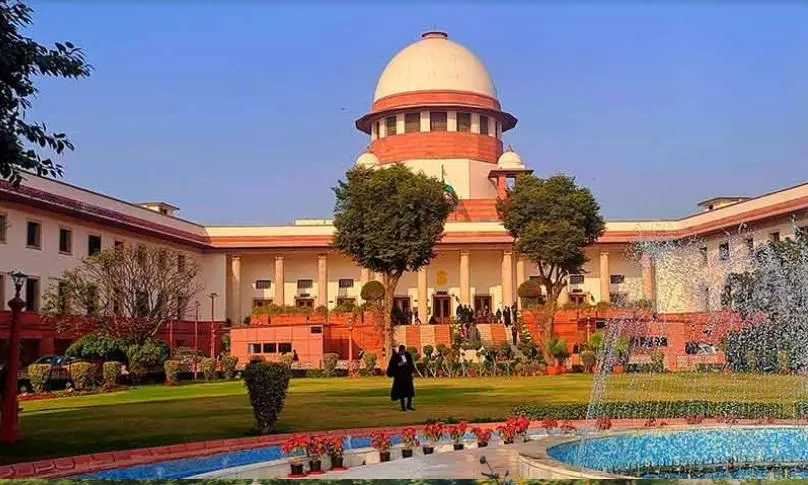
Official convicted of corruption should not be allowed to rejoin till exonerated: SC
text_fieldsNew Delhi: The Supreme Court said on Thursday that allowing corrupt government official to continue work will ‘damage public trust’.
A bench of Justice Sandeep Mehta and Justice Prasanna B Varale made the remarks while dismissing a petition by a railway inspector convicted in a bribery case, NDTV reported.
Questioning the corrupt officials resuming their jobs, the bench pointed out ‘If a guilty officer is allowed to remain in service, it will weaken the foundation of the system. This would be an insult to honest officers.’
The inspector of the Railway Protection Force (RPF) in his plea requested a stay on conviction meted out to him by a trial court in Gujarat over bribery case.
Having granted him bail after suspending the sentence, the Gujarat High Court however refused to suspend his conviction.
Representing the petitioner, advocate Niteen Kumar Sinha argued that the trial court made an error in convicting and then awarding two-year term to the inspector.
Urging the court to suspend the conviction thus allowing the inspector to resume job, Sinhal said that no evidence was found to prove the inspector had demanded bribe as was alleged against him.
Before dismissing the petition, the bench the citing the case of 'K.C. Sareen vs Union of India', said: ‘A convicted officer cannot be allowed to continue in service merely on the ground that an appeal is pending in a higher court. Allowing such public servants to continue in public office damages public trust.’
Referencing the 'K.C. Sareen vs Union of India' case, the court said that ‘when a public servant was found guilty of corruption after a judicial adjudicatory process conducted by a court of law, judiciousness demands that he should be treated as corrupt until he is exonerated by a superior court.’


















